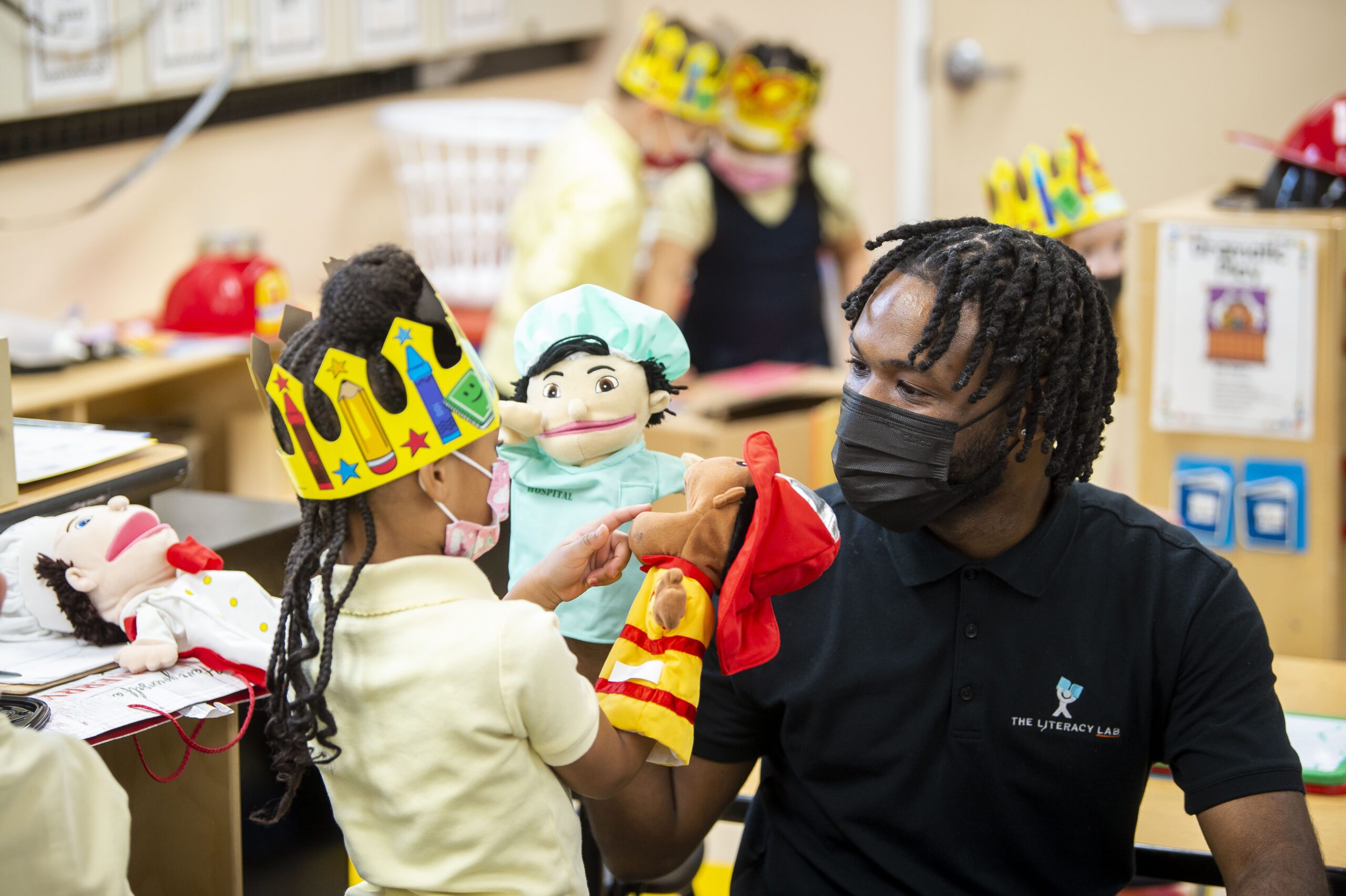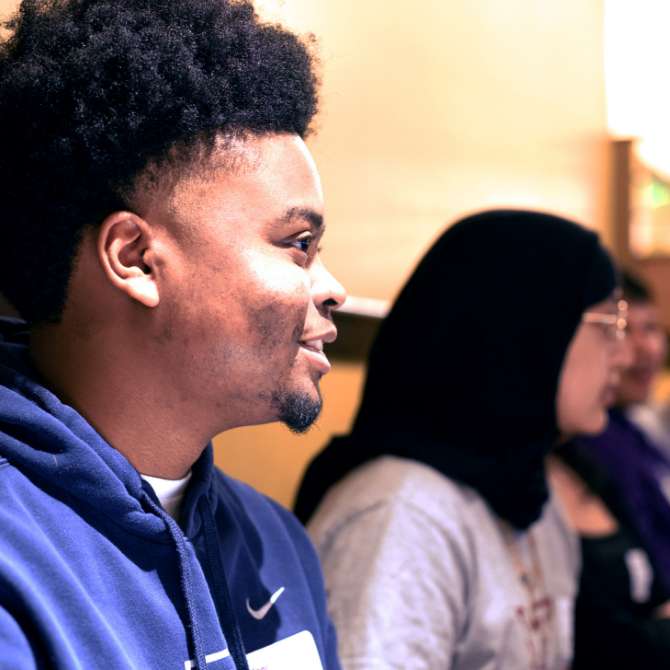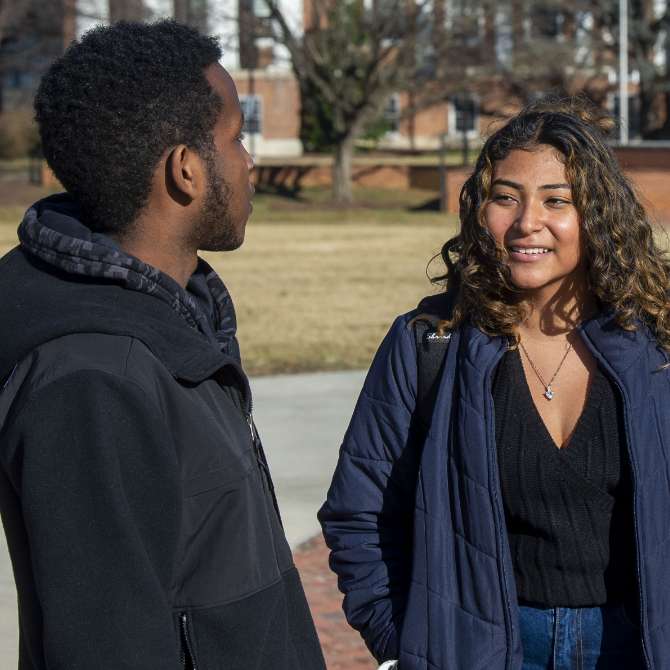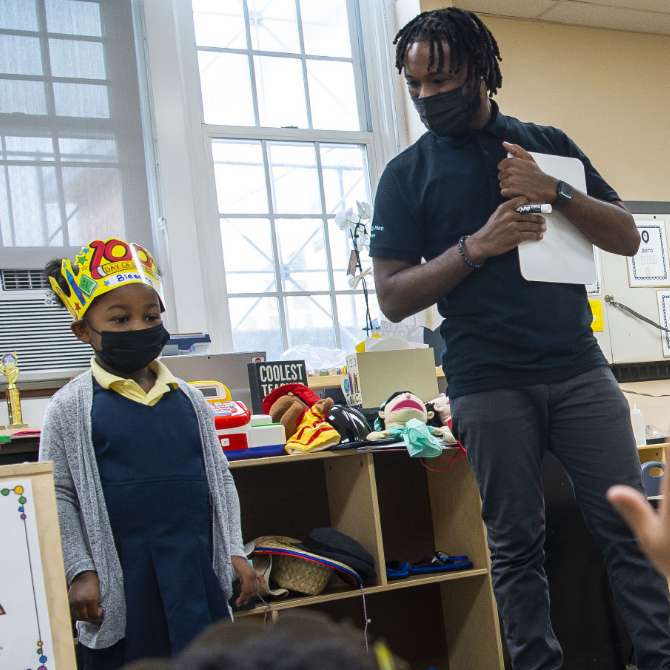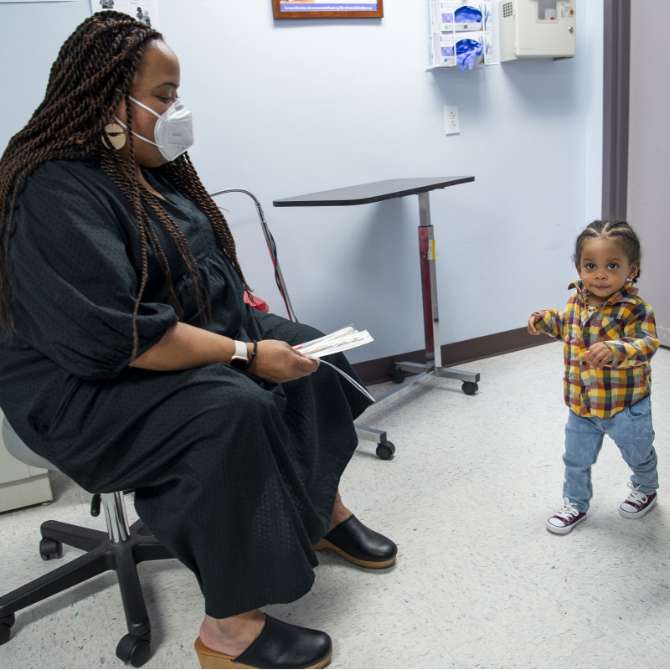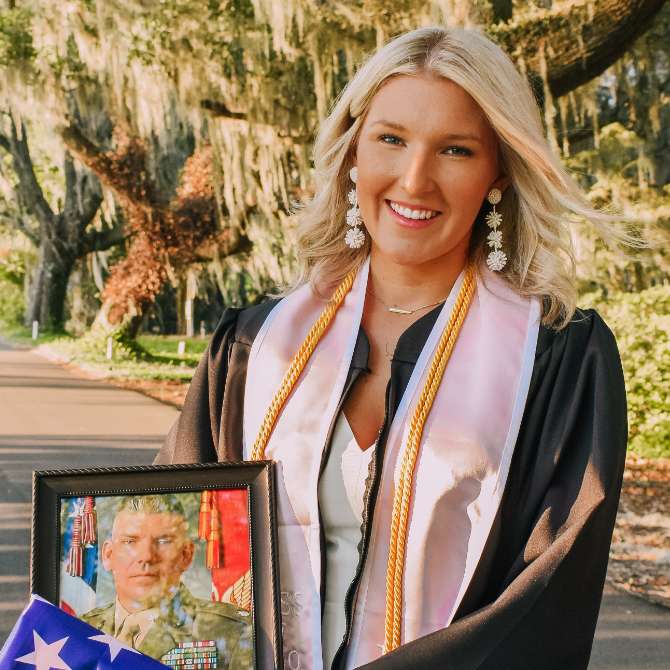Literacy as a Human Right
Learn More About our DC Initiatives in 2021
Strong Schools & Community Anchors
The Foundation’s DC-based initiatives seek to honor Mr. Clark’s commitment to give back to the community where he found much of his success. To date, we have invested over $132 million in schools, school-support organizations, and community anchor organizations serving the DC region. Our investment strategy is flexible – focused on understanding and supporting each grantee’s needs whether for general operating support or strengthening infrastructure through strategic planning, leadership development, new technology, or expanded facilities. Our 2021 investment highlights include:
- Renewed support of organizations like SOME, DC Greens, and Martha’s Table that have leveraged past funding to maintain strong, stable service delivery meeting critical community needs throughout the pandemic.
- A three-year investment in the merger and growth of Venture Philanthropy Partners and RaiseDC, which will help to establish a strong regional backbone organization to drive measurable outcomes for youth across the DC region through a collective impact model.
- Funding for the strategic growth of Statesmen College Preparatory Academy for Boys, Digital Pioneers Academy, and Saga Education’s high dose math tutoring model which now reaches 360 students across four DCPS high schools.
- Expanded support of the DC Reading Clinic which helps equip teachers with new tools to support students reading proficiency in grades K-2. Piloted in 2018 with seed funding from the Foundation, the DC Reading Clinic will eventually expand from 5 to 15 schools across DC.
College Persistence
Having invested almost $16 million in college persistence organizations serving students in the DC region, the Foundation is close to completing the wind-down of our College Persistence portfolio. Our investments, which have focused on scaling programs and building organizational capacity, have helped more DC students get to and through college via scholarships and individualized supports. During the past year, we rounded out our portfolio with investments in:
- DC Completes, a new program being piloted by Trinity University open to all DC public and public charter students. DC Completes provides students with grants to fill financial gaps they may encounter during their college career and coaching to help them navigate their own paths to college completion.
- DC CAP’s university partnership model, which provides scholarship funding and college persistence support to cohorts of DC public and public charter school students attending George Mason University and North Carolina A&T University – two institutions with strong completion rates among minority students and comprehensive support services for low-income and first-generation students.
Pictured above: Literacy Lab Leading Men Fellow Malachi Byrd.
Even after The Literacy Lab had experienced years of rapid growth, complete with expansion beyond its home turf of Washington, DC and into new markets around the country, Regional Director Jax Chaudhry was able to fully appreciate Literacy Lab’s success when an enthusiastic parent joined a Literacy Lab family stakeholder meeting to describe the transformation in her son.
Due to the child’s struggles with reading, he had never really fallen in love with school, and his mother worried he wouldn’t develop confidence in reading. Now, after less than a year of personal attention from a Literacy Lab tutor, she was praising the way the program had gotten her son excited again about reading and learning.
“It’s a full circle relationship,” Chaudhry says. “When we get a chance to have that family engagement, the connection to the tutor, and growth in overall love for reading—it just leads to real change.”
Inspiring fellows and kids alike
Malachi Byrd, a graduate of DC’s Cesar Chavez Public Charter School, agrees. As one of the program’s Leading Men Fellows, he spent the last half-year working with preschool-age kids to kindle a love of reading from the earliest ages. The Leading Men Fellowship is a residency-style experience for young men of color ages 18 to 24 that presents formative teaching opportunities in real-world educational settings.
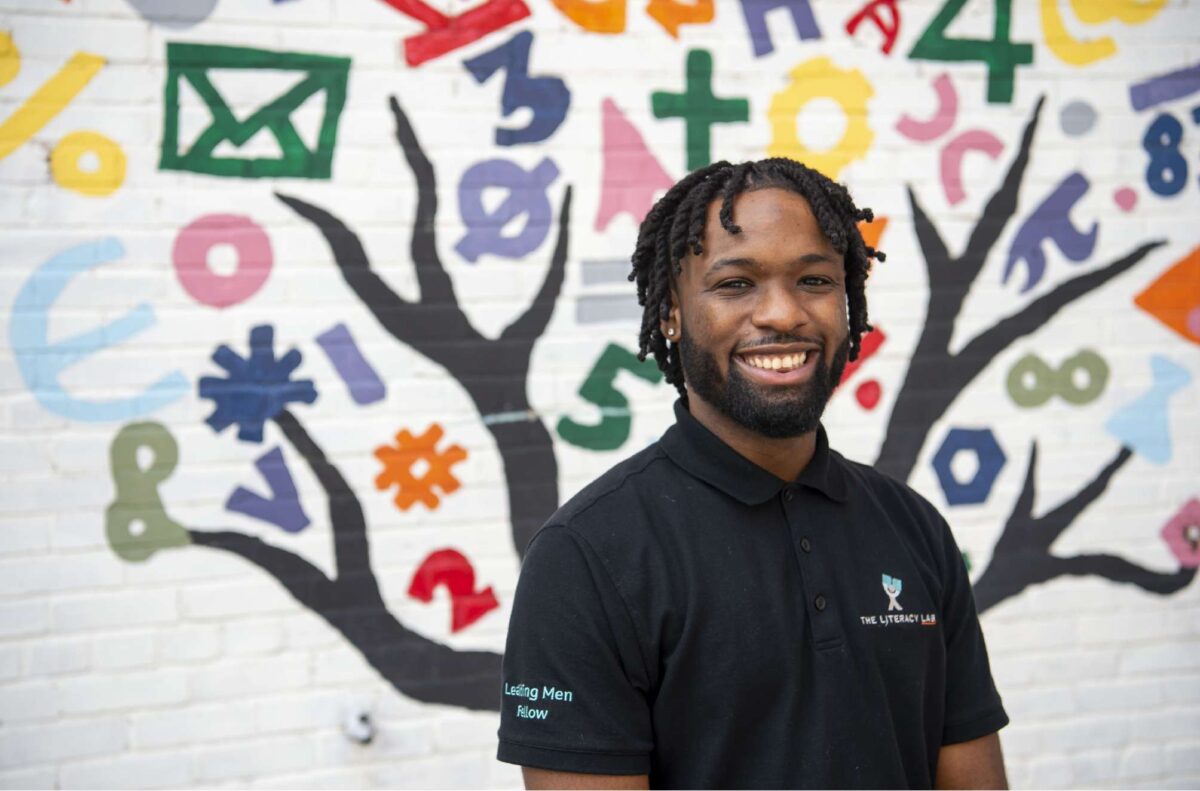
In return, Fellows benefit from coaching and professional development opportunities that extend their skills, all while earning valuable experience leading rigorous learning environments. Someday, Byrd can see himself founding his own school. He imagines it as a Literacy Lab for the performing arts. As such, he takes a multifaceted approach to teaching reading by incorporating prose and poetry into his lesson plans, along with songs and other oral approaches that continually reinforce the connection between the written word and the spoken word.
“We hope most, if not all, Fellows will complete their college educations and choose to pursue education as a career,” Chaudhry says. “The ultimate goal is to diversify the pipeline of high-quality teachers entering the field of early childhood education.”
Byrd finds his work an inspiration to the kids and to himself personally. At just 24 and a soon-to-be graduate from Princeton University, he is proud to play a part in the intellectual awakening of so many kids in his hometown of DC. He has connected especially to one bright 4-year-old, who is very smart but painfully shy. Byrd has worked to coax his “great young friend” out of his shell. And, after months of progress, it seems to be working.
“So much of our job is building relationships and engaging with these little humans who are learning everything about the world around them,” Byrd says of the rewards of teaching.
Reading as a cornerstone skill
The Literacy Lab began in 2009, offering after-school tutoring as a response to the experiences of co-founder Ashley Johnson, who worked as a special education teacher in DC Public Schools. As she saw it, too many high school-age kids were not reading at grade level—and many fell well below that mark. Without the fundamental skill of reading, their academic performance and their interest in school waned, along with their career prospects. Johnson decided to focus on that one skill as a cornerstone of lifelong learning. With co-CEO Tom Dillon, she founded The Literacy Lab to meet the challenge head-on as early as possible in the kids’ lives.
“We were high-dosage tutoring long before high-dosage tutoring was cool,” Chaudhry says, referencing the program’s philosophy of cramming a lot of content and lessons in a short period of time. “We’re really proud of our program, because it uses a daily model of teaching.”
The Literacy Lab focuses on high-dosage tutoring for kids between age three and grade three. That age group is crucial, Chaudhry notes, because research consistently shows that around grade three, there is a shift from learning to read to reading to learn. If the kids are not reading at grade level by then, Chaudhry says, they will begin to fall further behind their peers with each passing year.
“The learning environment is determined by their literacy level. Their ability to participate and to engage with others is compromised,” Chaudhry says. “That’s why we concentrate in those grades. If they can excel at reading and be excited about school, they’ll be excited about learning, too.”
The Literacy Lab has been a runaway success, and today more than a decade since its founding, thousands of school-age kids in DC, Alexandria, Virginia, and Montgomery County, Maryland, have gained a jump start on their academic lives thanks to this program. The Literacy Lab has since expanded to other cities where early reading has lagged, including Springfield, Massachusetts; Kansas City, Missouri; and Milwaukee, Wisconsin.
Game-changing Trust
In 2019, the Clark Foundation was so impressed with The Literacy Lab’s demonstrable results that it invested more than $1 million in the program over the next three years.
Specifically, the Foundation supported the Leading Men Fellows program and The Literacy Lab’s expansion in DC’s Ward 7. The Clark investment has allowed The Literacy Lab to extend stipends to new tutors, hire additional coaching specialists to teach Leading Men Fellows the Lab’s high-dose approach, bring on new program staff, and purchase much-needed materials and laptops. And the support was recently renewed.
The Literacy Lab now boasts a lineup of 100 tutors and 24 Leading Men Fellows serving in 53 schools, mostly in the DC area. Currently, over 1,200 students are benefitting from The Literacy Labs programs across the region—and the number is growing all the time. The Lab has plans to add new tutors in early 2022. It has also expanded in Wards 7 and 8, two areas of particular need. In all, The Literacy Lab is now working in 16 new schools in the DC region, including several in partnership with DC public schools’ highly regarded Knowledge Is Power Program (KIPP) charter school initiative.
“The trust placed in us by the Clark Foundation was important for financial reasons, but more so it was a symbolic gesture of deep connection to and understanding of the work that we do and why it’s so important. That really made the difference in what The Literacy Lab has become,” Chaudhry says. “It has been a game-changer for us.”
The Clark Foundation investment pays dividends in some unforeseen ways, too. Namely, Chaudhry says, the vote of confidence allows them to attract other donors who needed that stamp of approval. The program has leveraged an additional $800,000 in new funding over the grant period from other organizations.
Today, The Literacy Lab has proven so successful that many students develop so quickly that they reach their grade-level targets and no longer qualify for The Literacy Lab’s programs.
“That’s the ideal outcome for us,” Chaudhry says with a smile. “We would prefer to teach ourselves out of business and have no one left to teach.”
